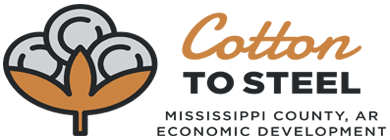Hyundai’s Savannah area metaplant: The Southern Automotive Corridor’s signature win to date?
For decades, the rumors that Volvo and Audi would build full assembly plants in the Southern Automotive Corridor would surface, then go away, then surface again. One rumor ended when Volvo announced it would build its first vehicle plant in the Western Hemisphere in 2015 near Charleston, S.C., in Berkeley County.
Who placed second in Volvo’s site search? Why, none other than a site near Savannah in Bryan County, Ga. Needless to say, the folks in Savannah felt that they had won the Volvo deal and were seriously bummed when they learned their place earned the bridesmaid status.
Seven years later, Hyundai showed up and announced the largest automotive project in the South’s history, a nearly $8 billion battery and assembly facility that will eventually house over 8,000 workers. Not a bad consolation prize, huh?
Hyundai broke ground on the massive plant near Savannah in October of 2022. The goal of the Korean automaker and its battery partner LG Energy is to begin production in early 2025 in order to begin capitalizing on new federal tax credits for EVs manufactured in the U.S. However, Hyundai officials have stated that production could begin as early as October of 2024.
The complex is enormous, encompassing 3,000 acres. Hyundai and LG Energy’s manufacturing process will be a blend of artificial intelligence, robotics and human labor for a “smart factory,” putting the meta into a “Metaplant.” Suppliers to Hyundai so far have made commitments for over 6,000 jobs and an additional $2.7 billion in new investments.
According to the Atlanta Journal Constitution, “The facility will feature a glass-encased conveyor belt “bridge” to transport vehicles from the factory’s paint shop over to final assembly. Jumbo Park, the plant’s head of engineering, said the elevated and lit passage will be visible from Interstate 16.
“One of the campus’ parking lots will feature a solar-panel canopy, which Park said will provide 5 percent of the factory’s electricity. The rest will be obtained through power purchase agreements, with the goal of sourcing 100 percent of the facility’s electricity from renewable sources.
“Visitors to the plant will be able to explore a greenspace at the front of the facility abutting the interstate, which officials said will be larger than Savannah’s iconic Forsyth Park, which spans more than 30 acres. The goal, Park said, is to “connect the community with the people who work in the plant.”
“For employees, on-site amenities will include restaurants, stores, a fitness center and health clinics,” Hyundai officials said.
Hyundai has not announced which models it will assemble at the Georgia plant. However, officials have said they will make electric models from the company’s three brands. Those would be Kia, Hyundai and the luxury line, Genesis. First year output is expected to be 300,000 EVs.
Georgia hits the jackpot with clean energy jobs
Georgia, with a large electric vehicle industry that is just emerging, is second only to Michigan with the number of new and expanded clean energy projects announced since August, when President Joe Biden signed the Inflation Reduction Act (IRA), which provides incentives for clean air application in manufacturing and other industries.
Nearly 20,000 jobs are being created in Georgia in new clean energy projects, a full 10 percent of the 200,000 expected to be created since the signing of the IRA. The Democrat’s comprehensive health care and clean energy law included billions of dollars in tax credits for the private sector to transition from fossil fuels to clean energy. Billions have already been gifted to those such as Hyundai, Toyota and other automakers as well, as in new hydrogen fuel projects and in carbon capture. Deals in those fields announced since the IRA was implemented are in the hundreds of billions. One of the largest clean energy projects ongoing is Hyundai and SK’s investments throughout the South, and more than $14 billion in Georgia alone.
RurAL on a winning streak, as is the rural South in general
Economic developers from rural communities in Alabama attended the RurAL Summit in November that was sponsored by the Alabama Department of Commerce. It was held at the Central Alabama Community College.
Since 2020, the state’s rural counties have attracted over $4 billion in new capital investment through a series of economic development projects expected to create more than 5,400 jobs, according to Commerce estimates.
Last year alone, new projects landing in Alabama’s “targeted,” or rural, counties will bring $1.8 billion in new investment and 1,900 jobs to communities such as Courtland, Selma, Greenville, Fayette and Cusseta.
Governor Kay Ivey, a native of Wilcox County, told the economic developers gathered at the Summit that she is committed to helping spur growth across all of Alabama, particularly in the state’s rural areas. MadeInAlabama.com
Who said “80 percent of all new jobs are created by existing industry?” Then, again, 100 percent of all lost jobs are created by existing industry
We have known for decades the fable that 80 percent of all new jobs are created by existing industry. It is just untrue. It is a different percentage in the South in any given year. Yet, we are quite sure that 100 percent of lost jobs are created by existing industry.
Sadly, that happened in Ardmore, Okla., in November, and residents of the city were stunned. “No one saw it coming,” said Bill Murphy, CEO of the Ardmore Development Authority, when Michelin announced it is winding down tire production at the plant that houses 1,400 workers. Michelin is Ardmore’s largest employer and a manufacturing anchor for Southern Oklahoma’s economy.
The plant, which opened in 1970, will close by the end of 2025, or sooner. Michelin officials cited changes in the passenger vehicle market, including larger tires for SUVs and new designs for electric vehicles. The company made the decision to pass on modernizing the plant for next-generation tires. The rubber-making line at the plant will continue to operate to deliver product to other Michelin tire plants in the U.S.
Ford is postponing production at second EV battery plant in Kentucky
“Originally, Ford announced two electric vehicle battery plants at the former Glendale megasite in Hardin County, Ky. The first facility is well under construction; however, the domestic automaker is postponing the second plant as it weighs the market. Officials at Ford are “slowing down” investments in electric vehicle production given the “dynamic” market of EVs at this early date of the new industry. Ford has also slowed production and future capacity at plants in Michigan to better match EV demand.
Port of Brunswick (Ga.) aims to become largest vehicle export/import port
In October, Georgia Ports Authority CEO Griff Lynch outlined the growth schedule for the Port of Brunswick as it expands to surpass the Port of Baltimore as the nation’s largest port for roll-on, roll-off cargo. The Georgia port is adding a fourth ship berth at Brunswick’s main terminal and is deepening and widening the harbor. “We will be the No. 1 port when we stand before you at this event in 2026,” Lynch told members of the Brunswick Golden Isles Chamber of Commerce at the Jekyll Island Convention Center.
Developers granted approval for additional phases of industrial parks in Huntsville, Ala.
“The Huntsville Planning Commission granted approval for additional phases to two industrial parks in the Limestone County part of the city. Both parks are near major employers Mazda Toyota Manufacturing, Amazon, Buffalo Rock and Polaris will total more than 200 million square feet when completed. The commission granted preliminary approval of the Huntsville West Industrial Park and layout and approval of phase three of Airport Properties being developed by the Huntsville Logistics Center. Triad Properties and Fairway Investments have already started work on the first building in the Huntsville West industrial Park, a 385,000-square-foot facility that will feature 32-foot minimum clear heights, 60-foot speed bays, 84 truck docks, a 185-foot truck court with 60-foot apron, space for 198 car parking spaces and 96 trailer parking spaces.” AL.com
EV materials project lands outside the heart of the industry in the Southern Automotive Corridor
A North Carolina county on the coast has landed a major economic development project. Epsilon Advanced Materials, an India-based manufacturer of battery materials, is planning to invest roughly $650 million to build its first North American factory in Brunswick County, N.C., far outside the spine of the Southern Auto Corridor, which now is I-65 and I-75 (considering Hyundai’s metaplant near Savannah and other projects). The company could create 500 jobs over three years to produce natural and synthetic graphite anode material.
Big River Steel opens new electrical steel line at its plant in the Arkansas Delta
U.S. Steel’s Big River plant in Osceola, Ark., has opened a new electrical steel line that will position the company as a key supplier in the electric vehicle market. The new steel product is ultra-thin with all the magnetic properties needed for EVs. No electric vehicle, motor or generator today is operational without the steel grades needed to transform electrical power into usable energy.
Mercedes-Benz to expand again in Alabama and South Carolina
Mercedes-Benz has applied for tax breaks for potential projects at two U.S. plants, including its Tuscaloosa County facility and its electric delivery vans and medium-sized electric luxury transporter plant in South Carolina. Both expansions include new all-electric models. In Alabama that would be the GLC SUV, which is currently only available with a combustion engine.
In 2022, Mercedes began electric vehicle production in Vance, Ala., capping five years of activity and more than $1 billion in investments, which also added an electric battery factory in Bibb County and 1,000 more employees. The German automaker is applying for incentives available under the Inflation Reduction Act (IRA), which has sparked billions in clean energy projects throughout the South.
Hyundai Motor Manufacturing Alabama (HMMA) to invest $190 million to upgrade production line in Montgomery, Ala.
The automaker plans to retool and upgrade its manufacturing facility for the fifth-generation Santa Fe.
Toyota Boshoku America, Gov. Beshear celebrate announcement of $225 million investment in Hopkinsville, Ky.
The automotive company will bring 157 high-paying jobs to Western Kentucky.
Construction continues at Hyundai’s $7.6 billion Metaplant in Savannah, Ga.
The 2,000-worker, 2,906-acre construction site is showing signs of progress with steel frames going up for most of the buildings, with roof and wall work beginning. Hyundai defined Metaplant on the facility’s first groundbreaking anniversary — “transformative, transcending.”
Rivian confirms 2024 Georgia factory groundbreaking
Speaking at the company’s new showroom at Ponce City Market in Atlanta, Rivian announced plans to break ground on its $5 billion factory near Rutledge, Ga., early next year. The factory will produce the R2 crossover and is expected to employ 7,500 workers.
Daechang Seat Corp. announces $72.5 million manufacturing facility near Hyundai’s Metaplant near Savannah, Ga.
The company makes seat frames, and the new facility will employ 500-plus people at the Savannah Chatham Manufacturing Center, an industrial park along I-16.
North Carolina lands EV battery components plant
Epsilon Advanced Materials, an Indian manufacturer of battery materials, will invest $640 million to build a factory in Brunswick County. The company will create 500 new, well-paying jobs.
Brunswick expansion will make Georgia home to the U.S.’s largest automotive port
The Port of Brunswick and other port facilities support 561,000 jobs and contribute $59 billion annually to Georgia’s gross domestic product, according to the University of Georgia.
PACCAR is expanding operations in Columbus, Miss.
The global automotive technology company is investing $209.4 million in two projects that will create 100 jobs. An industry leader in the design and manufacture of premium trucks, the company is expanding its existing facility by 50,000 square feet to add remanufacturing operations to the site.
Hwashin to build Georgia plant to supply Hyundai
The Korean auto parts and frame supplier is investing $176 million into a new plant in Dublin, which will create 460 new jobs. Hwashin has facilities globally, including its first in the U.S. in Alabama.
Hyundai Industrial Co., Ltd., to invest $24 million in Coweta County, Ga.
The automotive parts supplier will create 100 new jobs at a new manufacturing facility near Newnan, becoming yet another part of the large network of suppliers for Hyundai and Kia since Hyundai’s Metaplant announcement.












